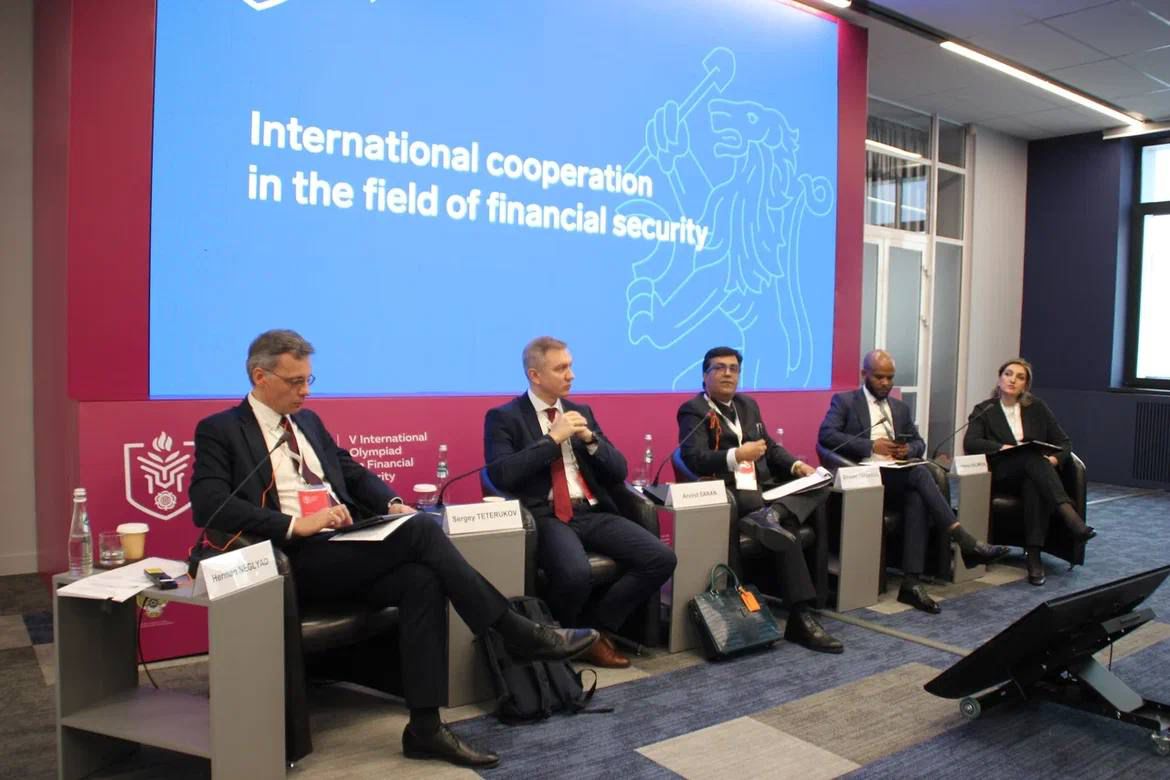-

13 October, 2025
A panel discussion titled "International Cooperation in the Field of Financial Security" was held at Siberian Federal University in Krasnoyarsk as part of the final week of the V International Olympiad on Financial Security.
The discussion was moderated by State Secretary and Deputy Director of the Federal Financial Monitoring Service, German Neglyad. He emphasized that international cooperation is a key pillar of a resilient global financial system:
"Criminals exploit the speed and anonymity of the digital world — our defense must be just as fast and global. The future of financial security depends on our ability to join forces and train the next generation of experts."Among the speakers were Sergey Teterukov, Executive Secretary of the Eurasian Group on Combating Money Laundering and Financing of Terrorism (EAG); Arvind Saran, First Secretary and Head of the Trade Section at the Embassy of India in Russia; Biniyam Tareken, Head of the Secretariat of Ethiopia’s Financial Intelligence Service; and Tahmina Salimova, Deputy Director of the Financial Monitoring Department at the National Bank of Tajikistan. Ambassadors of the International Financial Security Movement, Amna Mansour and Aeman Masood, also joined the discussion.
Experts highlighted that modern threats to financial security are transnational and require coordinated efforts between governments, international organizations, and the private sector. Particular attention was paid to risks posed by emerging technologies — from virtual assets and artificial intelligence to social engineering and deepfakes.
Sergey Teterukov spoke about international instruments used to combat money laundering and terrorist financing, including the work of the EAG. He cited projects that help member states implement the FATF Recommendations and develop relevant methodological guidelines.
Arvind Saran outlined India’s contribution to regional and global financial security amid technological advancement, stressing the importance of international cooperation in addressing current challenges.
A separate part of the discussion focused on the role of youth — both as future defenders of the financial system and, potentially, as targets or participants in financial crimes. Speakers emphasized the need for awareness campaigns among students, their involvement in developing solutions, and the importance of training specialists in financial security.
The Ethiopian representative discussed his country’s approach to preventing youth involvement in criminal activity. According to Biniyam Tareken, the strategy is based on joint efforts by financial intelligence, police, banks, and educational institutions. It includes financial data analysis, prosecution of recruiters, public education, and the integration of cybersecurity lessons into school curricula.
Tahmina Salimova’s address was dedicated to Tajikistan’s anti-fraud measures and interagency cooperation in this area.
Ambassadors of the International Financial Security Movement shared their motivations for pursuing careers in financial security, noting the Olympiad’s significant impact on their professional development.
During the session, an interactive survey of students was conducted. Results revealed the relevance of the topic:
- 75% of participants said their relatives had encountered financial security threats linked to new technologies
- 100% agreed that technology itself is neutral, with the intentions of users being the decisive factor
- 59% reported awareness of the work of financial intelligence units in ensuring financial security and investigating cybercrime, indicating strong interest among youth in the field of financial security.

 Login to your account
Login to your account Eng
Eng Рус
Рус